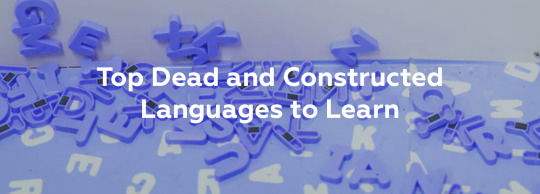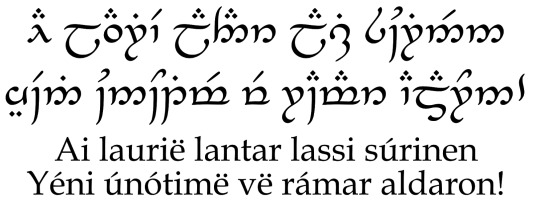#but like... the process of mathematical development across millennia around the world... has been the development of abstraction
Explore tagged Tumblr posts
Text
another thing i constantly expect to be more helpful than at this point i have reason to believe it will ever be is telling kids to think about quarters when they multiply by 25. again to me this is a very intuitive leap and if you ask most kids older than like first grade (and even some first graders who've done a money unit) how much is like 7 quarters they can tell you. but they simply will not connect that to 7 x 25. they just won't.
#years ago i read a thing about someone in some like latin american village (sorry for the blur of memory)#discovering that kids were doing lots of complicated calculations while helping their parents with their jobs#and framed this as like an indictment of math pedagogy that they couldn't do the same kind of thing in school#and used it to argue that it's important to make math connect to the real world#but like... the process of mathematical development across millennia around the world... has been the development of abstraction#and getting comfortable with math is a lot about learning to go back and forth between the concrete and the abstract#which is HARD for most people i think. and it's good to be aware of that and think about how to support that#but if you take the abstract non-real-world aspect out of math it is simply no longer 'math' i think
27 notes
·
View notes
Text
WIP Wednesday Thursday
Title: Extraordinary
Pairings: HotchReid (side pairings Morcia, WillxJJ, others in flirtation)
Summary: League of Extraordinary Gentleman/Vampire AU;
Within the FBI there is a specialized team full of an elite selection of people. Unique individuals with very particular skill sets. And their job is to take the unusual cases: the ones that need to not only be solved, but are undetermined if the unsub is human, or something else entirely.
In a world filled with Vampires, non-human creatures, and subspecies unknown, there is only enough information to have them vaguely regulated. Rules that are so easily, and violently broken, all while hidden in plain sight among the unsuspecting public. Unrivaled for eons.
That’s where the BAU comes in.
Official Posting Date: Now posted on tumblr and Ao3, Click Here
Links: (Masterpost) (Snippet 01) (Snippet 02) (Snippet 03) (Snippet 04)
(TW/CW: This is pretty tame, Emily is just a little intense and eager because Spencer is... well, Spencer, and when she realizes all he can do? Oh she is chomping at the bit. Some trance-like things and witchy stuff and Hotch being territorial without being able to admit it.)

(the story so far/what you need to know for this clip at least: this takes place in chapter 02, what you will all see on Saturday evening, and this version is insanely unpolished (I’m about to go through and fix it up and give it a good make-over) but basically this is the first time Spencer is meeting Emily Prentiss and it makes... an impression. Also, Emily has been at the BAU for about 0.2 seconds and Hotch is already done with her. The sibling energy I love to see. It’s also hella long, as an apology for missing last week and being a day late. All you’ve missed is Spencer about ran into Emily turning a corner and she saved him from spilling his case files and coffee all over the floor. Now they are talking)
–
.
“I apologize, I thought you were an intern or still in the academy.”
“It’s alright, everyone does,” Spencer says without taking offense. He wouldn’t have gotten where he was or lasted very long if he did; however, if he had a nickel for every time someone had been surprised by his age, he’d be as rich as Father Rossi. His full hands actually aids him as he mentions, “I don’t usually shake hands with people, so don’t think me rude. I’m Dr. Spencer Reid.” He offers her a smile in exchange, and it is mirrored on her face just as her surprise kicks up another notch.
“Doctor, my my I am in for a trip on this team, aren’t I?” she laughs, and it’s a melodic thing that stretches over an expanse of time and history. Ballrooms in Russia and palors of France, Elizabethan and the roaring 20’s and everything in between all rolled into one. He’s not sure how he sees it, an impossible thing, but he can read it like a book and that must have something to do with what she is. “Emily Prentiss, it is a remarkable pleasure to meet you Dr. Reid. Now, I have to ask--” her tone is so charming and playful and probing he barely notices the nuance, “And I’m sure it’s taboo around here, but I have to know -- your regeneration process. Tell me what it is or what you do. You look so young.”
“I am young,” he states simply, finally stunned by a question he’s not usually asked.
“Yes, yes, we all can’t be a thousand years old like your fearless Vampire leader,” she waves off and Spencer’s eyes widen because… he hadn’t known Hotch was that old. Sure he’d said he’d been alive for the better part of a millennia, but he always said it like a hyperbole. A turn of phrase that’s off by a couple centuries. But --
A thousand years old.
That would put him…
God, that would put him alive, as a human, just before the start of The Crusades.
“Oh, did he keep that to himself? Oops, my bad. Pretend you don’t know. Anyway -- so are you a Shifter? Or use a particular spell? Oh, or is it a curse? I’m fascinated by curses, I don’t use them often myself but the rigidity of terms using a power so chaotic is just such a fun juxtaposition that I--”
“No, no, I’m… normal, human,” Spencer interrupts her, still the smallest bit shell-shocked, but now connects a few dots himself as she speaks. Realizes very suddenly that Ms. Prentiss appears ageless because she is ageless. She’s also a Witch. One of the broadest terms for subspecies categories, which really doesn’t do it justice. A Witch could be a number of things. Someone who uses magic and science and the very Earth itself paired with the spiritual planes to do impossible things. Witches are beings so powerful they should be uncategorizable. Something Spencer is fascinated by as well. He’s never met anyone like Emily. “I look young because I am young. I’m 27, I’ve only been with the BAU for the past three years. I’m a little excited to not be the newbie on the team any more,” he tries to joke, but Emily’s gaze has gone distant and sharp all at once.
“You’re only 27? And you’re a doctor?” She asks in clarification, Spencer nodding along each time. “You’ve been a doctor, since becoming an FBI agent?”
“Um, well -- I’m not a medical doctor. I do have three doctorates, though; in mathematics, chemistry, and engineering,” he finds himself shrinking a bit under her intensely interested gaze. “What?”
“Chemistry?” she asks, vaguely more distant.
“That was my first doctorate,” he murmurs back, not sure what has her looking so contemplative.
“You’ve achieved all of this: three doctorates, FBI agent, BAU -- in 27 years?” she questions, a grave yet wondrous sound.
“Technically I did all of that in 15 years. I graduated high school when I was 12,” he manages to do more than mumble, and Emily’s wide-eyed stare has him spewing forth information like it requires an explanation. “I have an eidetic memory, and I can read 20,000 words a minute, and my IQ is 187 so by human standards yes -- I’m a genius, and borderline on the advanced brain developments scale. But I’m still human. Nothing paranormal or extraordinary.”
The pause that follows is palpable.
“Oh,” she says in an exhale, “Oh, you young soul. You have no idea, do you? What you are capable of...” She tilts her head as she steps closer and Spencer is very suddenly aware that he’s not sure she’s blinked since they started speaking about his qualifications. What he can do, how he got to where he is. No one usually shows this much interest, he makes them uncomfortable for reasons he doesn’t always understand.
Emily doesn’t look uncomfortable, she looks… hungry.
“You are so very, very extraordinary. Exceptional, really. Look at all of what you’ve accomplished with just 15 years of life.” That astonished sound again, like she can’t believe her luck--
And then she’s in his space, gaze boring into his, and Spencer can see galaxies in the depth of her eyes. His breath stolen from him and feet rooted to the floor. So he doesn’t step away as she leans just the smallest bit closer, words resonating with echoes across ages.
“Imagine what you could do with a thousand.”
“Prentiss,” the deep voice of Hotch’s monotone (edged in something vaguely aggressive, and more than a little aggravated) breaks through their moment. The trance fading like a fog from Spencer’s eyes. “No recruiting. It’s in your contract.”
“You have such a gift, it’s a shame to waste it,” Emily whispers in a rush as Hotch approaches them from down the hall. More earnest than intimidating, now.
“Prentiss!”
“Think about it,” she winks, and then turns to give Hotch a smile that’s all teeth so sharp she resembles a shark. “Oh, what a sour face. What’s wrong? Were you planning on asking him first? You snooze, you lose.”
“Conference room,” he instructs, pointing the way Spencer had just come. “Team meeting in 20 minutes. Try not to summon anything between here and there.” She sticks her tongue out at him childishly as she leaves, and sends a quirk of a smile Spencer’s direction that shifts her whole expression into something comically entertained. He’s never seen Hotch interact with someone like this, like they were… familiar, even exasperatingly so. The closest in comparison is probably Father Rossi. But this is less like old friends and more like sibling rivalry.
The space Emily had just vacated is suddenly filled with Hotch, an overwhelmingly welcomed presence and it eases the tension out of Spencer’s spine and shoulders that he hadn’t even realized was there.
“Are you okay?” he asks, low and quiet. They’re the only ones in the hallway, but secrecy is a hard habit to break.
Spencer nods, still gaining his bearings once more. “I think so. That didn’t feel like hypnotism. I don’t know what that was.”
“Prentiss doesn’t manipulate minds or the wills of other people,” Hotch tells him, which is soothing if not for the foreboding question of what just occurred. “She doesn’t need to. She can do a lot of things: change her face, her voice, make illusions and talk circles around anyone -- even you.” Spencer looks up to him at that, aware that his level of intelligence is the only thing that keeps him safe from JJ or Hotch’s influence. His mind can’t be bent, or tricked.
“Then what was she doing? I felt compelled but… not against my will. What was that?” he asks, also quiet but much more high in pitch as his confusion turns his voice to a winded sound.
Hotch’s thin, stern frown does nothing to alleviate the apprehension caught up in his chest like a bad cold.
.
“Possibility,” he states, grim and not liking that Spencer had fallen prey to such a short moment with Emily Prentiss and her promise of what her craft could do for him. Hotch is well aware that Spencer’s gift of soaking up every speck on information he’s given like a sponge isn’t something to let wither and die like so many before him. There’s so much he could do with an infinite life, such as his and Emily’s, but the curse of living forever alone is not something to be taken lightly. And not to be decided by someone who still has so much more life to live unaided by other forces.
However, Emily was right about one thing. Hotch can’t deny that he’s thought about it. More than considered it as a definite possibility.
An offer, all his own.
–
Tagged list so far: @physics-magic, @thaddeusly, @ssa-noa, @ssa-sarahsunshine, @tobias-hankel, @reidology, @mintphoenix
#THIS IS JUST A SNIPPET#it's a very long one as an apology for missing last week and being a day late#and also because it's COOL and I have no self control#Emily and Spencer would be a terrifying duo honestly#Also Emily and Hotch have the best sibling relationship ever#if anyone wants in on that taglist hit me up via ask or comment or rb#the story is posted! Updates on Saturday evenings#Extraordinary#HotchReid#Katyswriting#Katyswip#wip wednesday
20 notes
·
View notes
Text
Top Dead and Constructed Languages to Learn

Top Dead and Constructed Languages to Learn - Sciforce - Medium
As a rule, when we choose a language to learn, we have several reasons in mind: they might be useful for our professional growth or helpful in travels or in communication with certain communities. We might need a language because we move to another country or because we fall in love with a foreigner. However, a new language can be not only a means of communication: it is also a way to sharpen your mind, to find a deeper mental structure in what might first seem to be verbal chaos — and ultimately it can become a proxy to mastering computer logic and machine learning.
That is why it is a good idea to learn not a real live language — but a tongue that is dead and reconstructed or completely invented. Striped of numerous exceptions, variations and usage simplification that are inherent to natural languages we speak, they show only the ideal logical structure in the core of any language — be it human, computer, or mathematical.
In this blog post, we’ll present a list of our top of dead and artificial languages that might be useful to learn.
Dead Languages

Latin
Much more than a dead language of a dead ancient Empire, Latin is the language that had an enormous impact on the development of other European languages, as well as on the European culture and science.
Why to learn?
Latin is the parent of the modern Romance languages, which include Spanish, French, Italian, Portuguese and others. Therefore, the knowledge of Latin can facilitate learning these languages — and train you to see and to use the connections and similarities between them. These connections are so huge that learning Latin will virtually open up access to the whole Romance language family — and boost your analytical skills.
Latin is a highly-inflected language, which means that you can alter the meanings of words by merely changing the ending suffice. On the one hand, it makes Latin difficult to learn; on the other hand, it gives you an idea of the power of minute changes and a good eye for detail. And you’ll see that Latin IS well-structured!
Latin is not so dead as we might think. It is used, of course, in Catholic Church, but, more importantly, it is the basis of medical and biological classifications and to a certain extent of the academic slang.
Where to learn?
Latin might be offered to you at your university (it might be also a compulsory course), so grab the chance!
There are of course numerous courses and learning resources for any level:
Getting started on classical Latin is a free course that is aimed not at mastering the language itself but rather at discovering Latin grammar structures and its impact on English.
Learn Latin is a free app that provides users with vocabulary (verbs, nouns, adjectives, adverbs) that they can easily use to learn a word a day. Example sentences will also be provided to help learn the new word.
New Latin Grammar — a textbook for those who like explicit explanations.

unsplash.com
Sanskrit
Similar to Latin in Europe, Sanskrit was the lingua franca of the Indian subcontinent for three millennia and it provided the foundational texts for Hinduism, Buddhism, Sikhism and Jainism.
Why to learn?
Sanskrit has a huge impact on modern Indo-Aryan languages, such as Hindi that directly borrows Sanskrit grammar and vocabulary. Its influence reaches other languages, including Austronesian, Sino-Tibetan, and the languages of Southeast Asia.
The 49-character alphabet arranges characters in a rational and systematic manner: both the vowels and consonants are arranged according to the shape of the mouth when these sounds are emitted.
The morphology of word formation is unique and of its own kind where a word is formed from a tiny seed root in a precise grammatical order which has been the same since the very beginning. Any number of new words could be created from the root with the help of an extremely detailed prefix and suffix system.
The current global interest in Sanskrit is connected with the spread of yoga practices and Indian way of life around the world, so it has become a trendy language among people who declare to live “clean”.
Where to learn?
Learn Sanskrit online — an online course for beginners that features a rather informal approach to learning a new language.
Sanskrit grammar — in case you don’t want to actually speak Sanskrit but would prefer to use it as a tool to train your mind.
Ancient Greek

Classical, or Ancient, Greek is often considered the most important language in the intellectual life of Western civilization. While it does use an older and more foreign alphabet, learning Ancient Greek can allow you to read many ancient intellectual texts.
Why to learn?
Though not as evident as Latin, Greek has traces in modern academic languages: for instance, many of the modern English names of scientific disciplines come from Ancient Greek, including psychology, philology, theology, philosophy, etc.
The Greek alphabet was taken over from the Semitic as used in the Phoenician area, which in turn was based on an Egyptian alphabet. That makes the Greek alphabet a link between Western alphabets and the morphology of alphabets across Asia. Being familiar with the Greek alphabet is a definite advantage: even now, many technical studies borrow from the Greek alphabet and use it to a considerable degree.
Learning Ancient Greek can improve your understanding of grammar, since the sentence structure and the number of forms require a great deal of attention. The words of sentences are placed for their emphasis, rather than in accordance with a specific pattern, making the knowledge of the inflections highly important. Besides, inflections are attributes not only of nouns, but also of adjectives, pronouns, verbs and articles, so you need to keep an eye on all parts of speech simultaneously.
Where to learn?
Learn Ancient Greek is a free online course to learn the fundamentals of Classical Greek.
Introduction to Ancient Greek — is a traditional textbook that provides a thorough explanation of Ancient Greek grammar and morphology.
Hebrew

unitedwithisrael.org
Biblical Hebrew is the archaic form of modern Hebrew used to write the Old Testament of the Bible. Developed into a literary and liturgical language around 200 CE, it is currently taught in public schools in Israel, as an important way to understand modern Hebrew and the Jewish faith.
Why to learn?
It’s a very popular language for Jewish and Christian followers to study because it opens up the possibility for reading the Old Testament in its original language.
While it is similar to Modern Hebrew, the style, grammar, and vocabulary of Biblical Hebrew makes it much more difficult to learn. Having to establish the precise use of a case or mood or voice makes the interpreter consider all the various possibilities of meaning inherent in the language of the text. It sounds overcomplicated, but it is a perfect workout for your brains and the ability to consider all possibilities is a definite advantage.
Hebrew alphabet is also notoriously difficult to learn: in its traditional form, it consists only of consonants, written from right to left. It has 22 letters, five of which use different forms at the end of a word. Vowels are indicated by the weak consonants serving as vowel letters, or the letter can be combined with a previous vowel and becomes silent, or by imitation of such cases in the spelling of other forms. Bottom line, Biblical Hebrew is for those who like puzzles and mysteries hidden from the plain view.
Where to learn?
Biblical Hebrew Grammar — a course of 50 lessons covering the fundamentals of Ancient Hebrew
Biblical Hebrew — a set of online courses for different levels from absolute beginners to expert learners.
Old English

thoughtco.com
Old English, sometimes referred to as Anglo-Saxon, is the earliest historical form and the forefather of the contemporary English language. It was brought to Great Britain by Anglo-Saxon settlers probably in the mid-5th century and was spoken in England and Southern and Eastern Scotland in the early Middle Ages.
Why to learn?
Spoken in England before the Norman Conquest, Old English remains a truly Germanic language and shows the modern English connections to the Germanic family.
By learning Old English you can trace the evolution of a language over centuries on all levels from phonetic shifts to simplification of grammar and changes in vocabulary. This makes evident how a language responds to the changes in the society and how complicated grammar used to be.
Besides, it is written in the Anglo-Saxon variant of runes, so you can pretend to be a Viking.
Where to learn?
Old English Online is a course offered by the University of Texas where you will read through ancient texts building up your knowledge of Old English gradually.
Leornende Eald Englisc is a YouTube channel for those who likes less traditional and relaxed learning process.
Constructed Languages
Esperanto
Esperanto is the most successful international auxiliary language, with up to two million speakers. It was invented in the late 19th century by a Polish doctor, Ludwik Zamenhof, who wanted to end interethnic conflicts by providing everyone with a common and politically neutral tongue.

www.078.com.ua
Why to learn?
Contrary to old and dead languages, invented languages tend to simplify grammar and morphology. In Esperanto, word roots are mostly based on Latin and can be combined with affixes to form new words. The affixes can also stand alone: ejo = place, estro = leader/head, etc. The grammar has many traces of Slavic languages, although it is greatly simplified in comparison to them.
Spelling conventions are somewhat similar to Polish, though Zamenhof came up with some new letters for Esperanto (Ĉĉ, Ĝĝ, Ĥĥ, Ĵĵ, Ŝŝ, Ŭŭ). These letters are often replaced with ch, gh, jh or cx, gx, jx, or c’, g’, j’, etc.
Esperanto is an easy language to master with its small set of grammar rules and a transparent system of word endings: -o for nouns, -a for adjectives, -e for adverbs, -as for verbs in present tense. This makes grammar much clearer to a novice in language learning.
Where to learn?
Esperanto course– an app to learn basic Esperanto
Free Esperanto Course — a somewhat more traditional course explaining grammar rules and vocabulary.

https://en.wikipedia.org/wiki/Toki_Pona#/media/File:Sitelen_sitelen_contract.jpg
Toki Pona
Toki Pona is a language created by the Canadian linguist and translator Sonja Lang as a philosophical language for the purpose of simplifying thoughts and communication.
Why to learn?
Lang designed Toki Pona to express maximal meaning with minimal complexity and to promote positive thinking. One of Toki Pona’s main goals is a focus on minimalism, as it focuses on simple concepts and universal elements. The language has 120–125 root words and 14 phonemes designed to be easy to pronounce for speakers of various language backgrounds. Therefore, learning this language can help switch the focus from complexity to the minimum repertoire.
Inspired by Taoist philosophy, the language is designed to help users remove complexity from the thought process. Even with the small vocabulary, speakers are able to communicate, mainly relying on context, which highlights the importance of non-linguistic means of communication.
Where to learn?
o kama sona e toki pona! — a Toki Pona course introducing grammar rules and vocabulary
speak toki pona — an introductory audio course
Klingon

https://daily-klingon.tumblr.com/post/179493082615/this-is-the-piqad-script-as-developed-by-michael
Klingon, the language of a fictional warrior alien race in the Star Trek created by Marc Okrand and it is maybe the most famous constructed language.
Why to learn?
Perhaps the most fully realized science fiction language, Klingon has a complete grammar and vocabulary of 3000 words, so fans can actually learn it. There are even translations of Shakespeare, Sun Tzu and the Bible into the language.
Klingon was mostly created by a linguist who deliberately added complex rules and sounds that are rare in human languages. Therefore, this language, though not fully natural, can serve us as a proxy to understanding an alien — or at least a foreign — way of thinking and conceptualizing the world.
Another possible difficulty for anyone wanting to communicate in Klingon is that, as a space-based language, it’s lacking a lot of normal Earth words.

https://www.youtube.com/watch?v=K0cFLb-JmaQ Star Trek: Into Darkness
Where to learn?
There’s a Klingon Language Institute, the purpose of which is to promote the language and culture of this nonexistent people.
Learn Klingon the Easy(ish) Way — an online course of Klingon on You Tube
Learn Klingon Online — a complete course of Klingon
Quenya

https://en.wikipedia.org/wiki/Fictional_language
Quenya is one of the languages invented by JRR Tolkien in his Middle-earth world. A ceremonial Elvish tongue, it’s the most elaborate of all of Tolkien’s languages.
Why to learn?
First of all, Middle Earth was invented for Quenya and not vice versa: Tolkien began to write his stories in order to provide his language with a historical background. Tolkien tried to create the most beautiful language imaginable, and the sounds and grammar were taken mostly from the real Earth languages that he thought were the most beautiful: Finnish, Latin and Greek.
The most striking feature of Quenya is that it is a highly agglutinating language, meaning that multiple affixes are often added to words to express grammatical function. It is possible for one Quenya word to have the same meaning as an entire English sentence. Therefore, Quenya helps master a completely different way of building sentences and shows the possibilities of language economy.
It uses a special set of Elfish runes featuring, among others, representation of vowels with diacritics and the correspondence between shape features and sound features, and of the actual letter shapes.

https://www.looper.com/34326/things-you-didnt-know-about-the-ring-in-lord-of-the-rings/
Lord of the Rings (yes, we know that it’s the Black speech written in Tengwar)
Where to learn?
Quenya course — a textbook explaining Elfish grammar and introducing vocabulary.
Quenya — the Ancient Tongue — a brief survey providing the basics of Quenya grammar
High Valyrian

https://gameofthrones.fandom.com/wiki/High_Valyrian
High Valyrian is a ceremonial language from A Song of Ice and Fire series of fantasy novels by George R. R. Martin. While High Valyrian is not developed beyond a few words in the novels, for the TV series, linguist David J. Peterson created both the High Valyrian language, and its derivative languages Astapori and Meereenese Valyrian.
Why to learn?
This is the most recently developed language for the most popular TV series, so learning it at present is timely and trendy.
A dead language in the world of Westeros, High Valyrian occupies a cultural niche similar to that of Latin being the language of learning and education among the nobility, so learning it can make you feel double sophisticated (or nerd).
Despite its complicated inflectional grammar, High Valyrian does not have a special alphabet, so it is easier to master reading from the very beginning without additional obstacles.

https://gameofthrones.fandom.com/ru/wiki/%D0%9A%D1%80%D0%B0%D1%81%D0%BD%D1%8B%D0%B5_%D0%B6%D1%80%D0%B5%D1%86%D1%8B?file=%D0%9C%D0%B5%D0%BB%D0%B8%D1%81%D0%B0%D0%BD%D0%B4%D1%80%D0%B0_5x01.jpg
Where to learn?
High Valyrian Course — an app teaching the basic vocabulary and phrases
Learning High Valyrian — resources on grammar, phonology and vocabulary developed by fans
It might be that constructed languages lack the depth as they do not have actual system of idioms and metaphors behind them, or that dead languages are overcomplicated and outdated and no one would be able to communicate in them at present. However, learning such languages is an excellent exercise for our mind that help us develop more focus and attention and understand more about the logic of a language, the way we shape it and the way we want artificial languages — including machine ones — to work.
1 note
·
View note